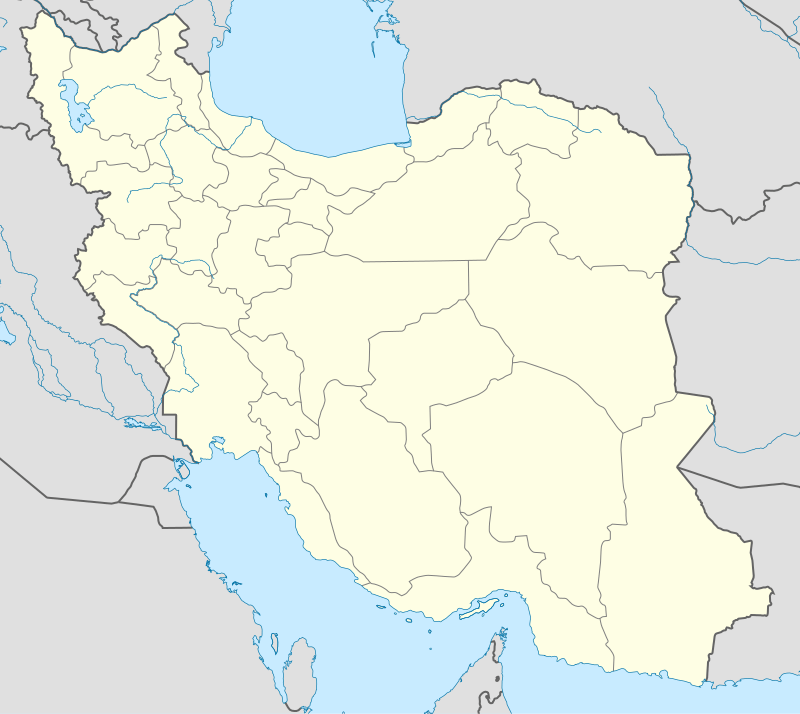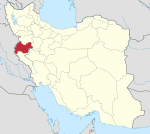Gilan-e Gharb
Gilan-e Gharb (Kurdish:گیەڵان) (Persian: گيلانغرب; also Romanized as Gīlān-e Gharb; also known as Gharb)[2] is the capital city of Gilan-e Gharb County, Kermanshah Province, Iran.
Gilan-e Gharb گيلانغرب | |
|---|---|
City | |
 Gilan-e Gharb | |
| Coordinates: 34°08′32″N 45°55′13″E | |
| Country | |
| Province | Kermanshah |
| County | Gilan-e Gharb |
| Bakhsh | Central |
| Elevation | 810 m (2,660 ft) |
| Population (2016 Census) | |
| • Total | 22,331 [1] |
| Time zone | UTC+3:30 (IRST) |
| • Summer (DST) | UTC+4:30 (IRDT) |
| Area code(s) | 0834 |
Gilan-e Gharb is the second resistant city after Khoramshahr, which was the first resistant city during the Iran-Iraq war (1980-1988). The city was a haven for Iraqi Kurds, who fled to their city after Saddam Hussein ordered genocide against them. The city is populated by Kalhor Kurds who are Shia Muslim. It is considered to be the literary center of the Southern Kurdish dialect. It has fostered many artists, poets, actors, and intellectuals.
Demographics
After the 2016 census, its population was about 24,000 and the population of Glian-e Gharb County was about 60,000.
Climate
Gilan-e Gharb has the typical continentally-influenced Mediterranean climate of western Iran. However, in recent years dust storms have contaminated the air, triggering respiratory diseases, including asthma.
Notables
Farangis Fattahi is noted for the defense of her family when she confronted an Iraqi soldier and killed him with an ax.[3]
History
In the center of the city lies an historic hill, fabled to contain a big golden horse buried under it, although the Iranian Government has not attempted to excavate it yet.
Economy
The economy of Gilan-e Gharb is largely based on agriculture. Employment is low and many people have migrated to Tehran for work.
References
- https://www.amar.org.ir/english
- Gilan-e Gharb can be found at GEOnet Names Server, at this link, by opening the Advanced Search box, entering "-3064347" in the "Unique Feature Id" form, and clicking on "Search Database".
- Zadeh, Sara (27 September 2015). "Farangis, a Narration of the Brave women of Gilan Gharb". Oral History. Translated by Mohammad Bagher Khoshnevisan. Retrieved 2017-04-30.
